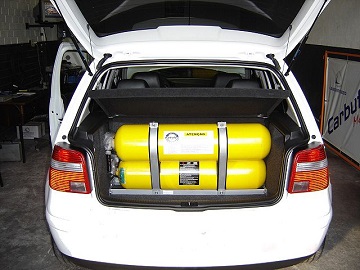
The Federal Government of Nigeria has reported an investment of approximately $700 million in Compressed Natural Gas (CNG) and electric vehicles in 2024, credited to incentives introduced by President Bola Ahmed Tinubu to bolster the nation’s energy sector.
According to the Special Adviser on Energy to the President, Olu Verheijen, the reforms were designed to encourage investments in electric mobility, midstream and downstream infrastructure, and the adoption of Liquefied Petroleum Gas (LPG), CNG, and mini-Liquefied Natural Gas (mini-LNG).
Verheijen highlighted that President Tinubu, within weeks of assuming office in May 2023, established an Energy Office to lead bold reforms aimed at repositioning Nigeria as a global investment destination. She emphasized Tinubu’s vision of ensuring affordable, sustainable, and abundant energy for domestic use and export.
“Our energy strategy focuses on eliminating wasteful petrol subsidies, growing oil and gas production, scaling up on-grid electrification, and prioritizing gas as a resilient energy source for mass electrification, clean cooking, and manufacturing,” Verheijen said.
Nigeria moved into the top quartile of competitive returns among 14 indexed countries vying for deep offshore investments. The country secured three out of four Final Investment Decisions (FIDs) in Africa, with a combined value exceeding $5 billion. Total and the Nigerian National Petroleum Company Limited invested $500 million in the Ubeta gas project. Additionally, Shell, Total, ENI, and Exxon committed $5 billion to the Bonga North project, increasing Nigeria’s oil production by 110,000 barrels per day.
Over $700 million in investments was recorded in the energy transition value chain, including CNG, LPG, and electric vehicles. Verheijen outlined progress in Nigeria’s power sector, including the Presidential Metering Initiative launched in 2024, which aims to deploy over 5 million smart meters by 2027. She noted that the government mobilized ₦700 billion in investments to bridge the metering gap and introduced cost-reflective electricity tariffs to ensure sustainable power delivery.
Looking ahead, Verheijen expressed optimism about Nigeria’s ability to attract additional investments and deliver transformational outcomes through its energy reforms. “As 2025 begins, these reforms will gain even greater momentum, driving prosperity for current and future generations,” she concluded.
This progress underscores the Federal Government’s commitment to leveraging Nigeria’s abundant resources for economic growth, job creation, and energy security.
